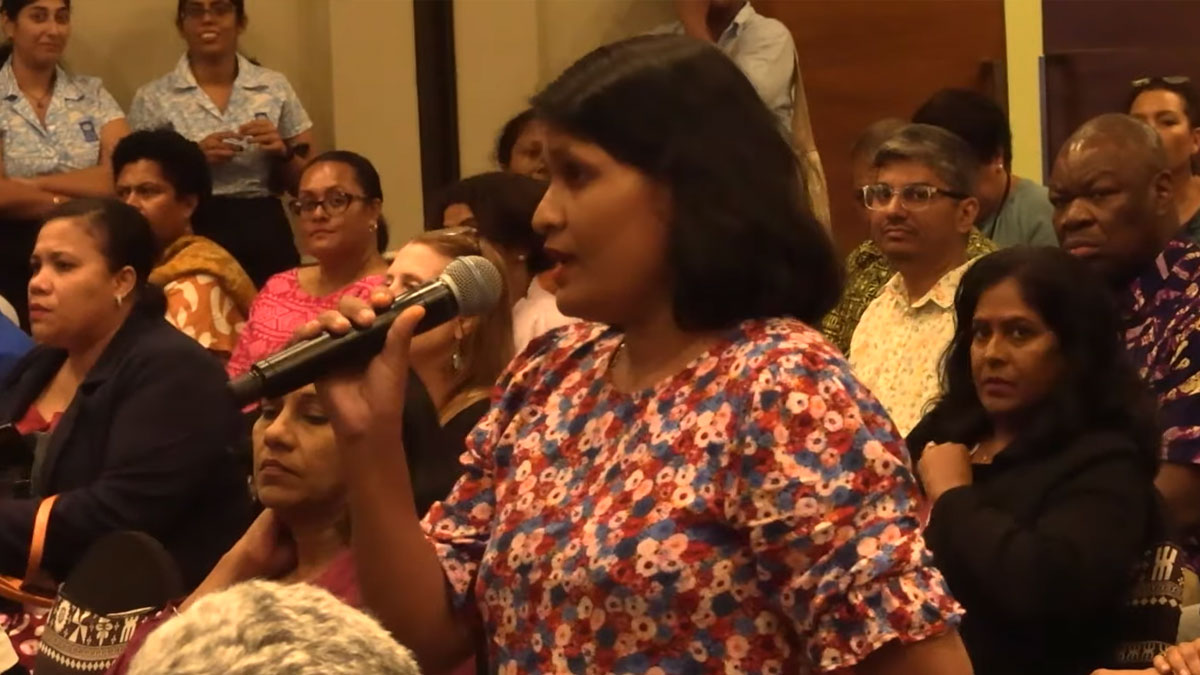
It is unfair that those enjoying immunity from coup prosecutions freely contest elections. Those immune from prosecutions should be barred from contesting elections for four to eight years, or fully.
Fiji National University’s Department of Ethics and Governance lecturer Dr Mosmi Bhim has made these submissions to the Electoral Law Reform Commission during consultations.
She says former Prime Minister Voreqe Bainimarama had initially stated that a two-term limit for Prime Ministers would be included in the Constitution, but this provision is missing in the 2013 Constitution.
She recommends reinstating a two-term limit to strengthen leadership accountability.
Dr Bhim says political donations of more than $10,000 should be permitted, but receipts for each ticket sold at fundraising events should not be required and instead parties should only provide the total number of tickets sold, a breakdown of expenses, and a profit report.
Dr Bhim further says criminal convictions should not disqualify individuals for minor misdemeanours and the threshold should be revised from a 12-month sentence to less than that.
She says this would reduce fear and intimidation, encouraging more citizens to run for office.
The lecturer also says the current 48-hour media and advertising blackout before elections is too long, and should either be removed or reduced to 24 hours.
Dr Bhim has also submitted that the current requirement of 5,000 signatures for political party registration should be reduced to 1,000 or 500 and for independent candidates, she proposes reducing the current 1,000-signature requirement to 500 or even 200.
She says these changes would promote political participation and allow more citizens to realise their right to vote and be represented in government.
She has also submitted reducing the $1,000 candidate fee to $500, and in the long term, financial assistance should be made available to potential candidates living below the poverty line.
Dr Bhim also highlighted the importance of removing restrictions on voter education, saying that educational institutions, NGOs, civil society organisations, and grassroots groups should be supported and given the space to engage in voter awareness activities.
She questioned the inconsistency of allowing the government to benefit from foreign donor aid to conduct elections while penalising voter education initiatives funded by those same donors.
She has also called for the removal of Section 115 of the Electoral Act 2014, which restricts foreign-funded voter education activities once the Writ of Elections is issued.
Dr Bhim says any decisions made by the Electoral Commission or Fijian Elections Office should be open to appeal in the court.
Dr Bhim submits that fines of $5,000 to $50,000 and jail terms of 5 to 10 years are excessive and should be reduced to fines between $10 and $500.
She has also submitted changes to laws that currently prevent legal challenges to decisions made by the Electoral Commission, FEO, or Supervisor of Elections, saying such provisions violate fundamental human rights.
Public consultations on the review of the Electoral Act 2014, the Electoral (Registration of Voters) Act 2012, and the Political Parties (Registration, Conduct, Funding and Disclosures) Act 2013 are expected to continue this week.
Stay tuned for the latest news on our radio stations

